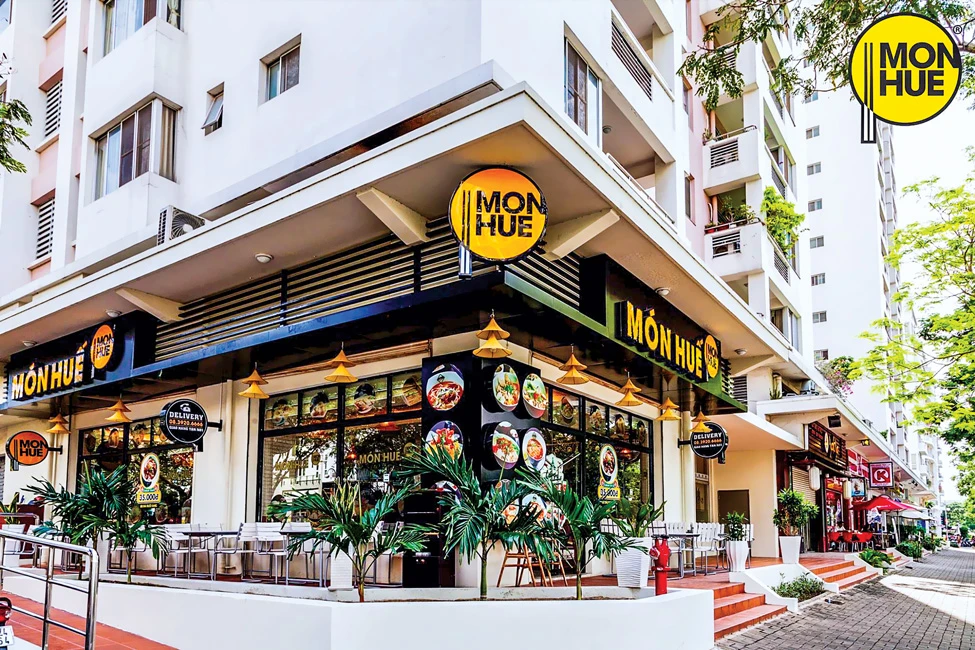
To discuss this case in detail, Saigon Investment held an interview with Mr. Pham Viet Anh, a consultant on strategy and business growth, on the current competition and situation in the F&B industry in Vietnam.
The Huy Viet Nam Food Processing Co. Ltd had become an excellent example in raising large amounts of capital to develop its food chain. Specifically, at the end of 2014, the company successfully raised capital from investors in Malaysia, South Korea and Hong Kong, to the tune of USD 15 million.
At the beginning of 2015, this company successfully continued to raise more capital of around USD 15 million from an US investment fund. From then on, the Huy Viet Nam Company grew rapidly. However, soon after its chain of restaurants were closed and its website shut down, the owners could not be found, and many suppliers now accuse the Company of property appropriation.
JOURNALIST: - When the Huy Viet Nam Company closed the Mon Hue restaurant chain and other stores under its umbrella brand, someone commented that Vietnam's F&B business was very tough. What do you think about this?
Mr. PHAM VIET ANH: - Nowadays, in a fast moving and fast integrating market, every industry faces strong competition, but I think Vietnam's F&B industry is still strong and has a lot of future potential.
According to forecast for 2020, Vietnam will have approximately 44 million people in the urban middle class. This number will increase to 95 million by 2030. The middle class includes households with daily consumption expenses of about USD 10-100 per person (according to Nielsen).
The rapid increase in this class will create huge purchasing power in the future. This is a fertile ground for businesses and also the reason why many domestic and foreign brands are continuing to develop restaurant chains in Vietnam.
However, any business potential always comes with risks. F&B sector is one part of a large retail market. The most important factor in the retail market is the location of a business premise. This factor can decide the success or failure of a business model. Therefore, the battle to acquire prime business space is always fierce and aggressive. The cost of space in Vietnam is unreasonable in the structure of retail businesses. Retail enterprises have to have huge amounts of surplus funds to develop a store large enough to compensate for other weak stores.
The cost of renting space is high while the selling price cannot be too high compared to the average income of customers, especially in the F&B chain which operates in the popular segment. This difficulty has caused many domestic and foreign F&B chains to "run for their lives" such as NYDC, Gloria Jeans, and Pho 24.
In the case of the Huy Viet Nam Company, there are comments that the administrative system was the cause of the failure of this enterprise when it was developing into a large chain. But in my opinion, managing a chain of stores is now a lot simpler, as many tools are available and most chains in Vietnam follow a standard management technology. Though management technology contributes significantly to the success of all businesses, any business could still not be able to exist without steady growth and profit.
- The Huy Viet Nam Company had successfully raised tens of million dollars from foreign funds, but they still failed in the end? Please comment.
- Raising capital is only a necessary step but not a determining factor for the success of any business. When businesses want to develop, they will seek funding, cooperation, and investment from investment funds. In fact, when receiving capital, the Huy Viet Nam Company had a very significant chain growth from a few dozen stores in the beginning to hundreds of stores by the time they shut down. Besides Mon Hue and Pho Ong Hung, they also expanded many other brands.
In the world, there are also businesses that successfully raise billions of capital in USD, but still fail in business. Investment funds can also be considered a source of failure. In case of the Huy Viet Nam Company, because I have not read its financial statements, I cannot judge the actual situation of this business as well as of the investors in this chain. Maybe they got the capital to grow to a certain number of stores, but they failed.
- Do you think that the closing of the Huy Viet Nam restaurant chain and stores will discourage young people to enter the F&B sector?
- Success or failure in business is completely normal. The Huy Viet Nam Company had to close a chain of their stores but there are many other successful chains still running. While many foreign chain stores withdrew from Vietnam there were other chains that jumped in, because this market has high potential.
When investing in the Vietnamese market, foreign investors have many different purposes and targets, such as investing to sell for profit. For young people and startups, if they are determined enough, they can venture into this business, but need to grow slowly to control costs, adjust systems and policies, before replicating any model.
In particular, the biggest problem of domestic enterprises is the gap between their words and their action. If they cannot change in the long term, their brand credit rating will be harmed.
- Thank you very much.




















